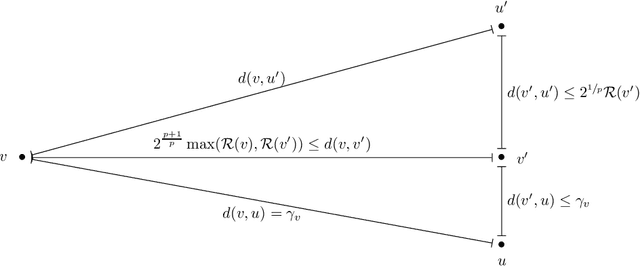Mustafa Yalçıner
VeriFlow: Modeling Distributions for Neural Network Verification
Jun 20, 2024Abstract:Formal verification has emerged as a promising method to ensure the safety and reliability of neural networks. Naively verifying a safety property amounts to ensuring the safety of a neural network for the whole input space irrespective of any training or test set. However, this also implies that the safety of the neural network is checked even for inputs that do not occur in the real-world and have no meaning at all, often resulting in spurious errors. To tackle this shortcoming, we propose the VeriFlow architecture as a flow based density model tailored to allow any verification approach to restrict its search to the some data distribution of interest. We argue that our architecture is particularly well suited for this purpose because of two major properties. First, we show that the transformation and log-density function that are defined by our model are piece-wise affine. Therefore, the model allows the usage of verifiers based on SMT with linear arithmetic. Second, upper density level sets (UDL) of the data distribution take the shape of an $L^p$-ball in the latent space. As a consequence, representations of UDLs specified by a given probability are effectively computable in latent space. This allows for SMT and abstract interpretation approaches with fine-grained, probabilistically interpretable, control regarding on how (a)typical the inputs subject to verification are.
Improved Approximation Algorithms for Individually Fair Clustering
Jun 26, 2021
Abstract:We consider the $k$-clustering problem with $\ell_p$-norm cost, which includes $k$-median, $k$-means and $k$-center cost functions, under an individual notion of fairness proposed by Jung et al. [2020]: given a set of points $P$ of size $n$, a set of $k$ centers induces a fair clustering if for every point $v\in P$, $v$ can find a center among its $n/k$ closest neighbors. Recently, Mahabadi and Vakilian [2020] showed how to get a $(p^{O(p)},7)$-bicriteria approximation for the problem of fair $k$-clustering with $\ell_p$-norm cost: every point finds a center within distance at most $7$ times its distance to its $(n/k)$-th closest neighbor and the $\ell_p$-norm cost of the solution is at most $p^{O(p)}$ times the cost of an optimal fair solution. In this work, for any $\varepsilon>0$, we present an improved $(16^p +\varepsilon,3)$-bicriteria approximation for the fair $k$-clustering with $\ell_p$-norm cost. To achieve our guarantees, we extend the framework of [Charikar et al., 2002, Swamy, 2016] and devise a $16^p$-approximation algorithm for the facility location with $\ell_p$-norm cost under matroid constraint which might be of an independent interest. Besides, our approach suggests a reduction from our individually fair clustering to a clustering with a group fairness requirement proposed by Kleindessner et al. [2019], which is essentially the median matroid problem [Krishnaswamy et al., 2011].
 Add to Chrome
Add to Chrome Add to Firefox
Add to Firefox Add to Edge
Add to Edge